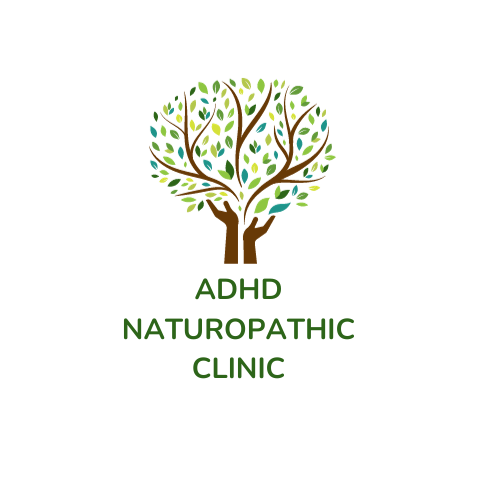Gut Health Issues
Gut health problems can manifest in a variety of ways, often disrupting daily life and overall well-being. These issues can lead to persistent discomfort, affecting not only your digestive system but also your energy levels, mental clarity, and emotional state. Symptoms such as bloating, gas, and abdominal pain can make it difficult to enjoy meals, while more severe problems like diarrhea or constipation can interfere with daily activities and social interactions. Beyond physical discomfort, gut health issues can contribute to feelings of fatigue and mood disturbances, highlighting the critical role of the gut in maintaining overall health and vitality. Recognizing and addressing these symptoms is essential for restoring balance and improving quality of life.
Common symptoms include:
- Bloating: A feeling of fullness and swelling in the abdomen.
- Gas: Excessive flatulence or belching.
- Abdominal Pain: Cramping or discomfort in the stomach area.
- Diarrhea: Frequent, loose, or watery stools.
- Constipation: Difficulty in passing stools or infrequent bowel movements.
- Heartburn: A burning sensation in the chest or throat.
- Nausea: Feeling of sickness or the urge to vomit.
- Fatigue: Unexplained tiredness or low energy levels.
- Unintentional Weight Changes: Sudden weight gain or loss without a clear reason.
Why These Issues Occur
Gut health issues can arise due to various factors, including:
Imbalanced Microbiome: A disruption in the balance of beneficial and harmful bacteria in the gut can lead to digestive issues, inflammation, and a weakened immune system. This imbalance, known as dysbiosis, can result from poor diet, stress, or antibiotic use, and may manifest as bloating, gas, or irregular bowel movements.
Food Sensitivities: Adverse reactions to certain foods, such as gluten, dairy, or specific carbohydrates, can trigger gut inflammation and discomfort. These sensitivities often result in symptoms like bloating, diarrhea, and abdominal pain, and may require personalized dietary adjustments to manage effectively.
Chronic Stress: Ongoing stress can affect gut motility and function, leading to symptoms like cramping, bloating, and changes in bowel habits. Stress can alter the gut-brain axis, influencing digestive processes and exacerbating conditions such as irritable bowel syndrome (IBS).
Infections: Bacterial, viral, or parasitic infections can lead to digestive problems, disrupting the normal function of the gastrointestinal tract. Infections can cause acute symptoms like diarrhea, nausea, and abdominal pain, and may also have long-term impacts on gut health if not properly treated.
Poor Diet: A high intake of processed foods, sugars, and unhealthy fats can harm gut health by feeding harmful bacteria and depleting beneficial ones. This dietary pattern can lead to inflammation, nutrient deficiencies, and a compromised gut barrier, resulting in digestive discomfort and chronic health issues.
Medications: Antibiotics and other medications can disrupt the gut flora, killing off beneficial bacteria and allowing harmful microbes to proliferate. This imbalance can cause symptoms like diarrhea, bloating, and increased susceptibility to infections, highlighting the need for careful management of medication use and probiotic support.
How Our Testing Can Help
At our clinic, we use targeted testing methods to uncover the underlying causes of gut health issues and create tailored treatment plans. To ensure we recommend the most effective tests and health protocols for your situation, you will need to book an initial consultation. During this consultation, we will evaluate your specific needs and suggest the most appropriate testing to help you move forward with a personalized and effective approach to improving your health. The specific testing methods we use will be determined based on your individual needs and may include one or more of the following options.
- Organic Acids Test (OAT): This comprehensive test evaluates metabolic byproducts in the urine, providing insights into gut dysbiosis, yeast overgrowth, and nutritional deficiencies. It can reveal imbalances in the gut microbiome and identify potential toxins affecting gut health.
- GI Mapping: This DNA-based stool test analyses the microbial composition of your gut. It detects pathogenic bacteria, parasites, viruses, and fungal overgrowth. GI Mapping also measures markers of inflammation, digestive function, and immune response in the gut.
- Genetic Testing: Genetic testing can play a crucial role in understanding and managing gut health issues. By examining specific genetic markers, we can identify predispositions to various digestive conditions, such as lactose intolerance, celiac disease, and inflammatory bowel diseases. Genetic testing can also reveal variations in genes related to nutrient absorption, detoxification pathways, and gut barrier function.
- Mycotoxin Testing: Mycotoxin testing is a valuable tool in diagnosing gut health issues that may arise from mold exposure. Mycotoxins are toxic compounds produced by certain types of mold that can adversely affect the gastrointestinal system. When ingested or inhaled, these toxins can disrupt the gut microbiome, leading to symptoms such as bloating, abdominal pain, diarrhea, and persistent digestive discomfort.
- Allergy Testing: Plays a crucial role in diagnosing and managing gut health issues related to food and environmental allergens. Allergic reactions can trigger gastrointestinal symptoms such as bloating, cramping, diarrhea, and nausea, often resulting from sensitivities to certain foods or substances.
Getting to the Root Cause
Our approach is centered on identifying and addressing the root cause of your gut health issues, rather than just treating the symptoms. By understanding the unique factors contributing to your condition, we can create a personalized treatment plan that may include:
- Dietary Changes: Recommendations for a balanced diet rich in prebiotics and probiotics.
- Supplements and Herbal Medicine: Targeted supplementation and herbal remedies to support gut healing and restore balance. These natural treatments can help alleviate symptoms, improve digestion, and promote a healthy gut microbiome.
- Stress Management: Techniques to reduce stress and improve gut-brain connection.
- Lifestyle Modifications: Advice on exercise, sleep, and other lifestyle factors that impact gut health.
Our goal is to help you achieve long-term relief and optimal digestive health. If you're experiencing any of these symptoms, consider scheduling an appointment to begin your journey towards better gut health. We are here to support you every step of the way, using cutting-edge testing and a holistic approach to get to the root cause of your issues.
What to do next
To begin your journey towards better health, book an initial consultation with our Naturopath, Herbalist, or Nutritionist. During this session, we will assess your specific needs and determine the most appropriate health protocol and testing for you.

